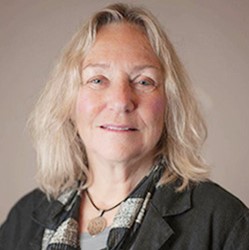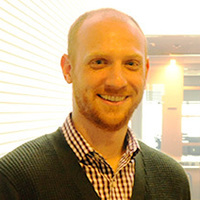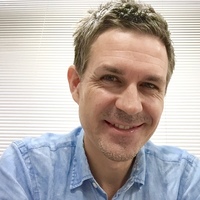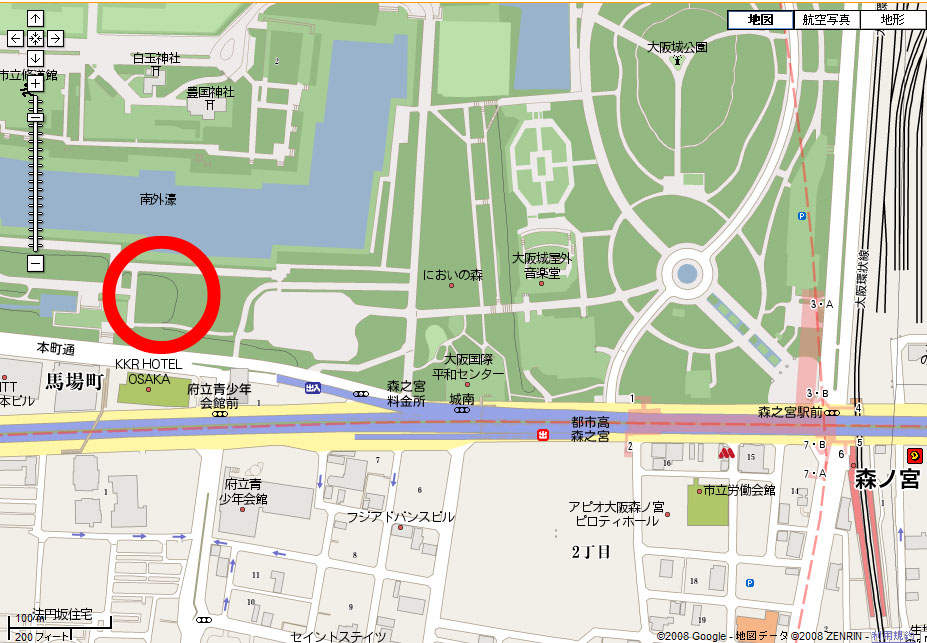Sunday, October 27, 2019 - 12:35pm to 5:35pm
Schedule:
12:45 Registration
1:00-1:45 English Teaching Methods: What's New Under the Sun by Donna Brinton, JALT2019 Plenary Speaker
2:00-2:35 SMART Goals and Transfer of Presentation Skills by Denise Haugh (Kyoto Chapter)
2:45-3:20 Critical Pedagogy in Japanese EFL Curricula by Michael Hollenback (Osaka Chapter)
3:30-4:05 What can we still learn from errors? by Leigh McDowell (Nara Chapter)
4:15-4:50 Reflections on Osaka City University`s First Education for Sustainable Development (ESD) Course, April 2019 by Liz Leigh (Osaka Chapter)
4:50 Closing and clean up
English Language Teaching Methods: What’s New under the Sun? by Donna Brinton (JALT2019 Plenary Speaker and Soka University Visiting Scholar)
 Richards and Rodgers, in their seminal article on the nature of language teaching methods (2001), define the concept of “method” as consisting of three components: approach, design, and procedure. Applying this framework to an analysis of English language teaching (ELT), we see that ELT methods across the ages have differed widely with respect to a variety of factors. Following a brief comparison of selected methods, we explore the concept of the postmethod condition and reorient ourselves to new methodological paradigms that are informed by research into motivation, learner variability, cognition, and social participation. Informing these are trends in ELT practices such as the need for workplace English, the proliferation of World Englishes, the spread of English as a lingua franca, advances in digital technology, shifts in language policy, and the resulting growing population of young learners. The presentation concludes with a summary of “what is new under the sun” to help guide us in our application of ELT methods.
Richards and Rodgers, in their seminal article on the nature of language teaching methods (2001), define the concept of “method” as consisting of three components: approach, design, and procedure. Applying this framework to an analysis of English language teaching (ELT), we see that ELT methods across the ages have differed widely with respect to a variety of factors. Following a brief comparison of selected methods, we explore the concept of the postmethod condition and reorient ourselves to new methodological paradigms that are informed by research into motivation, learner variability, cognition, and social participation. Informing these are trends in ELT practices such as the need for workplace English, the proliferation of World Englishes, the spread of English as a lingua franca, advances in digital technology, shifts in language policy, and the resulting growing population of young learners. The presentation concludes with a summary of “what is new under the sun” to help guide us in our application of ELT methods.
SMART Goals and Transfer of Presentation Skills by Denise Haugh (Kyoto University of Foreign Studies, Kyoto JALT Conference Grant Winner)
 SMART Goals track and provide structure to goal setting. In a classroom context, instructors can incorporate this effective tool to motivate students to accomplish their overarching goals and corresponding learning objectives. SMART Goals require students to align themselves to the following five criteria in order for their goals to be verifiable. The goals must be specific, measurable, attainable, relevant, and time bound. As they provide the intermediary steps that underlie successful outcomes, SMART Goals not only foster students’ personal sense of agency in an academic setting but transfer learning outcomes to a range of contexts in the world at large. Investigating what motivates students in English language learning has led me to design a course on how presentation skills could cultivate the “I can do this!” attitude for speaking English in a variety of situations. Drawing from Dornyei’s (2005, 2009a) L2 motivational self system, I instruct the students to choose one SMART Goal from a predetermined list of four – to be more 1) confident, 2) organized, 3) expressive, or 3) creative – and ask them apply its significance to their learning objectives (a list of presentation techniques that includes eye contact, gesture, posture, clarity and projection of voice, facial expression, and state of relaxation). The SMART Goal and learning objectives enable students to assess and develop their ideas of what they would like to become. For their ideal self to manifest, a robust application of motivation, one that highlights its motivational, cognitive, and emotional features is set into place (Dornyei, 2005).
SMART Goals track and provide structure to goal setting. In a classroom context, instructors can incorporate this effective tool to motivate students to accomplish their overarching goals and corresponding learning objectives. SMART Goals require students to align themselves to the following five criteria in order for their goals to be verifiable. The goals must be specific, measurable, attainable, relevant, and time bound. As they provide the intermediary steps that underlie successful outcomes, SMART Goals not only foster students’ personal sense of agency in an academic setting but transfer learning outcomes to a range of contexts in the world at large. Investigating what motivates students in English language learning has led me to design a course on how presentation skills could cultivate the “I can do this!” attitude for speaking English in a variety of situations. Drawing from Dornyei’s (2005, 2009a) L2 motivational self system, I instruct the students to choose one SMART Goal from a predetermined list of four – to be more 1) confident, 2) organized, 3) expressive, or 3) creative – and ask them apply its significance to their learning objectives (a list of presentation techniques that includes eye contact, gesture, posture, clarity and projection of voice, facial expression, and state of relaxation). The SMART Goal and learning objectives enable students to assess and develop their ideas of what they would like to become. For their ideal self to manifest, a robust application of motivation, one that highlights its motivational, cognitive, and emotional features is set into place (Dornyei, 2005).
Critical Pedagogy in Japanese EFL Curricula by Michael Hollenback (Kobe City University of Foreign Studies, Osaka JALT Chapter member)
 Critical Pedagogy was born in the 1960s from Paolo Freire in rural Brazil with disenfranchised farmers developing their political identity through literacy. Afterwards, Critical Pedagogy has continued to grow as a field of educational research around the world through the questioning of the hidden curriculum and critiquing implicit class reproduction in education. Furthermore, much of the literature regarding Critical Pedagogy focuses on national education policy and trends of neoliberalization in educational organization. So, what relevance does Critical Pedagogy hold for the EFL classroom in modern Japan and why should teachers embrace tenants of Critical Pedagogy in their teaching? While MEXT seeks to train students with ‘global human resources’, this falls far short of the revolutionary educational philosophy of Critical Pedagogy. This presentation explains what Critical Pedagogy is and provides a short history of the field until the present. Then, a short look at MEXT policy regarding English learning will be explored against the background of Critical Pedagogy. Finally, a focus on how the goals of Critical Pedagogy can be successfully integrated into EFL curricula and learning targets will be discussed. The presentation asserts that followers of Critical Pedagogy must endeavor to develop not only language proficiency but also political citizenship of their students and use both of these skills to drive advocacy in the world outside the classroom.
Critical Pedagogy was born in the 1960s from Paolo Freire in rural Brazil with disenfranchised farmers developing their political identity through literacy. Afterwards, Critical Pedagogy has continued to grow as a field of educational research around the world through the questioning of the hidden curriculum and critiquing implicit class reproduction in education. Furthermore, much of the literature regarding Critical Pedagogy focuses on national education policy and trends of neoliberalization in educational organization. So, what relevance does Critical Pedagogy hold for the EFL classroom in modern Japan and why should teachers embrace tenants of Critical Pedagogy in their teaching? While MEXT seeks to train students with ‘global human resources’, this falls far short of the revolutionary educational philosophy of Critical Pedagogy. This presentation explains what Critical Pedagogy is and provides a short history of the field until the present. Then, a short look at MEXT policy regarding English learning will be explored against the background of Critical Pedagogy. Finally, a focus on how the goals of Critical Pedagogy can be successfully integrated into EFL curricula and learning targets will be discussed. The presentation asserts that followers of Critical Pedagogy must endeavor to develop not only language proficiency but also political citizenship of their students and use both of these skills to drive advocacy in the world outside the classroom.
What can we still learn from errors? By Leigh McDowell (Nara Institute of Science and Technology, Nara JALT Chapter President)
 Error Analysis was initially conceived in early SLA research to investigate the systems underlying learner language and has since gained wider application in ELT research; for example, the International Corpus of Learner English (ICLE) project has contrasted the interlanguage and errors of numerous national populations to derive deep pedagogical insights. However, for many teachers, the analytical and often technological barriers to employing error analysis in their teaching practices are restrictively high. This presentation demonstrates a simple yet robust procedure for error analysis that can be applied by any teacher with access to commonly available tools such as MS Word and Excel. Additionally, it illustrates how this procedure can inform language teaching practices by drawing on preliminary data from an error analysis of 18 texts written by Japanese materials scientists and identifying their most pressing lexico-grammatical needs.
Error Analysis was initially conceived in early SLA research to investigate the systems underlying learner language and has since gained wider application in ELT research; for example, the International Corpus of Learner English (ICLE) project has contrasted the interlanguage and errors of numerous national populations to derive deep pedagogical insights. However, for many teachers, the analytical and often technological barriers to employing error analysis in their teaching practices are restrictively high. This presentation demonstrates a simple yet robust procedure for error analysis that can be applied by any teacher with access to commonly available tools such as MS Word and Excel. Additionally, it illustrates how this procedure can inform language teaching practices by drawing on preliminary data from an error analysis of 18 texts written by Japanese materials scientists and identifying their most pressing lexico-grammatical needs.
Reflections on Osaka City University`s First Education for Sustainable Development (ESD) Course, April 2019 ~ by Liz Leigh (Osaka City University, Osaka JALT Chapter member)
 At last year’s annual JALT conference GILE SIG Forum, the proposed course design and curriculum content for a new ESD course at Osaka City University was explained. The course design focuses on current problems of unsustainability and possible solutions, and the curriculum content is made up of instructor provided materials, the students` own research, group discussions and group presentations. This year`s GILE SIG Forum presentation is a reflection on the strengths, challenges and subsequent improvements made to that proposed course, which was taught for the first time during the spring/summer semester of this academic year.
At last year’s annual JALT conference GILE SIG Forum, the proposed course design and curriculum content for a new ESD course at Osaka City University was explained. The course design focuses on current problems of unsustainability and possible solutions, and the curriculum content is made up of instructor provided materials, the students` own research, group discussions and group presentations. This year`s GILE SIG Forum presentation is a reflection on the strengths, challenges and subsequent improvements made to that proposed course, which was taught for the first time during the spring/summer semester of this academic year.
This event will be followed by a dinner party at E-San Thai Restaurant. RSVP by Thursday, October 24th.
Location:
Doshisha Women’s College Imadegawa, Rakushinkan Rm205
Venue Address:
〒602-0893 京都市上京区今出川通寺町西入
Speakers:
Donna Brinton, Denise Haugh, Michael Hollenback, Leigh McDowell, & Liz Leigh
This event is FREE for everyone.
Sponsored by Kobe, Kyoto, Nara, and Osaka JALT Chapters
Contact or Queries

 Social event
Social event








